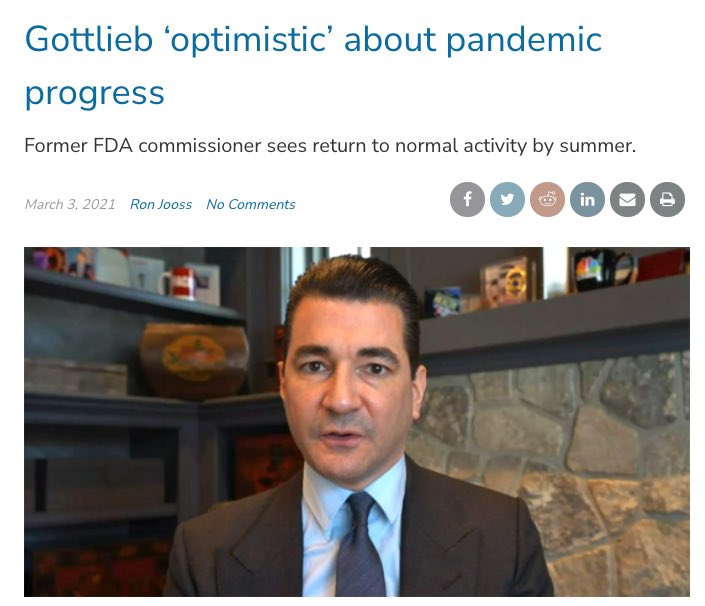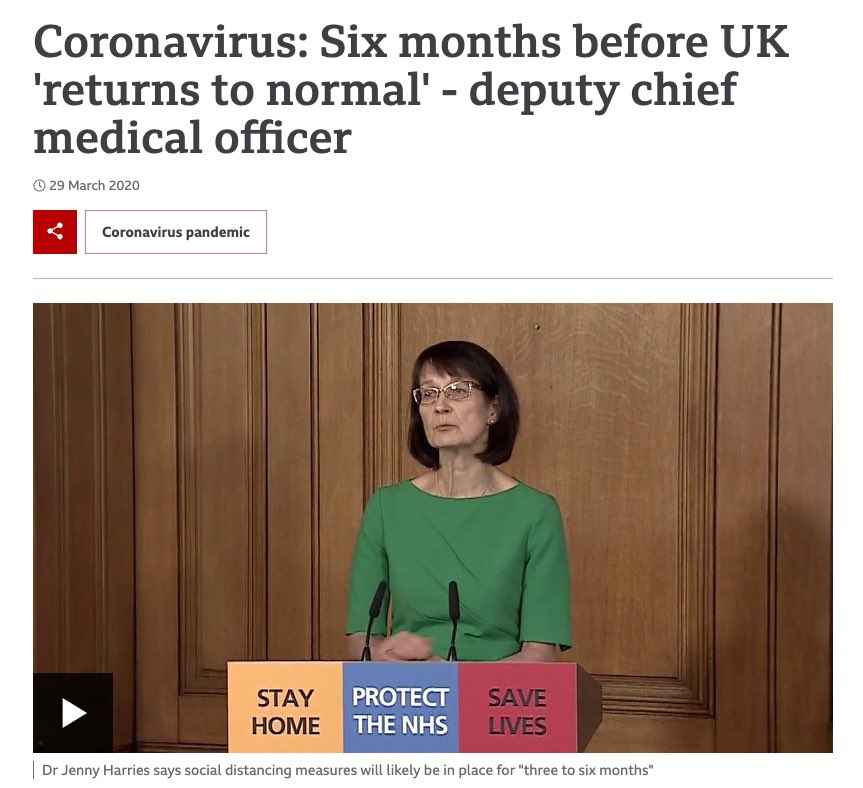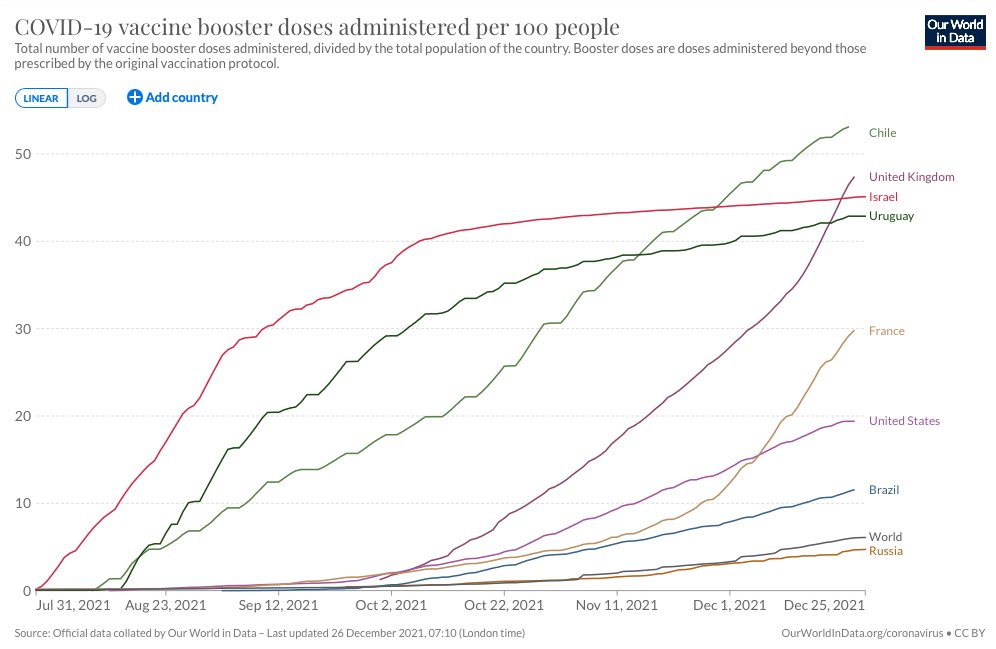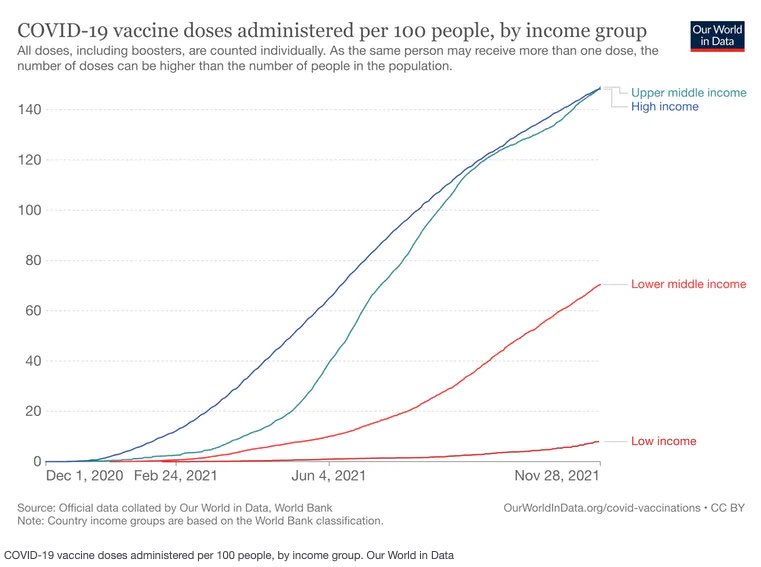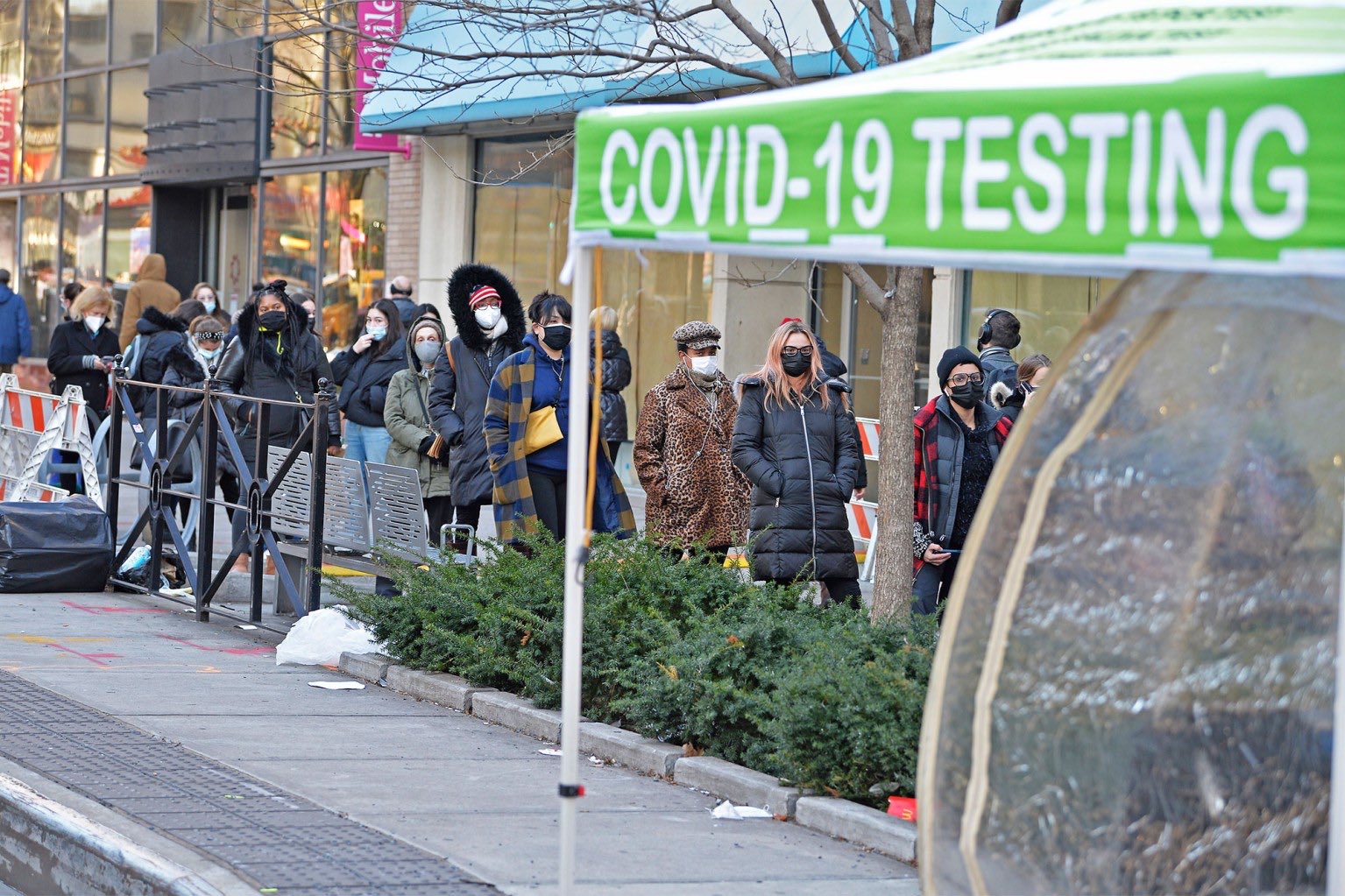Thread
1/ Lots of questions on why I think we could be in the early part of the COVID decade. Tons of focus right now on omicron, but not many talking about the long game. This isn’t a deterministic prediction but a scenario very few policymakers are willing to talk about openly. 🧵
2/ At almost every turn of this pandemic, numerous experts have declared that the end of the pandemic is near, if we can only hold on for a few weeks or months. This has raised a lot of false hope over the last couple years.
3/ With omicron, some experts are declaring that this last wave will spell the end of the pandemic in 2022.
4/ There are plenty of reasons to believe that not only will COVID continue to circulate for many years with significant population-level disease burden, but we will also have to “accept” structural changes to the way we live for the foreseeable future.
5/ Many epidemiologists are covering the emerging evidence on omicron, but here is my take:
- Way more transmissible
- “Milder” than Delta, but more severe than the wild type
- Immune escape with the standard regimen of 2x mRNA
- Waning immunity of boosters vs. symptomatic COVID
- Way more transmissible
- “Milder” than Delta, but more severe than the wild type
- Immune escape with the standard regimen of 2x mRNA
- Waning immunity of boosters vs. symptomatic COVID
6/ The Omicron “surprise” pierced a big hole in the vaccines-as-silver-bullet thesis, and now the end game isn’t as simple as “get everyone vaccinated.”
7/ Despite our best efforts, we will never catch up with 3rd (and 4th) boosters to cover 100% of the population. Too much vaccine hesitancy and lack of infrastructure to achieve meaningful booster rates in most parts of the world.
8/ When you zoom out to the rest of world, most of the world has yet to even get one dose of vaccine. This is fertile breeding ground for the next big variant of concern to emerge. At this rate, it will be years before the world is vaccinated.
9/ While omicron will cause a lot of pain over the next few months, it could be worse. This is a depressing read on how the virus could outfox vaccines and therapies. If not omicron, then perhaps the next VOC would resemble one of these scenarios.
www.gov.uk/government/publications/long-term-evolution-of-sars-cov-2-26-july-2021/long-term-evolution...
www.gov.uk/government/publications/long-term-evolution-of-sars-cov-2-26-july-2021/long-term-evolution...
10/ The confidence of vaccine makers to create a new vaccine for a bad variant is really high, but the virus seems to come up with new variants faster than we can make new vaccines. By the time an omicron vaccine is manufactured, the omicron wave will be over.
11/ The next “silver bullet” that everyone seems to be banking on are the oral therapies. Is it plausible that once they are widely distributed, we might see resistance? Seems pretty plausible to me.
12/ Even if omicron and future variants are mild, the longer-term implications of "long COVID", even after mild cases, are not yet understood. This is one of my fears for why COVID will never be “just like the flu.” www.theguardian.com/commentisfree/2021/dec/23/omicron-covid-19-long-hauler
13/ Even if we decide to “let it rip”, individual circumstances and risk tolerance will vary. You may be living with an immunocompromised person or you may have kids who aren’t yet vaccinated. Or you’re willing to live with some level of risk and move on.
14/ Even when omicron passes, there are a few cases where structural changes will probably stick (e.g., travel, work, schools) -- where social interactions require us to meet the needs of the many (incl. the vulnerable and at-risk), not just the preferences of the individual.
15/ A lot of people I know got exposed (and notified through exposure notifications) on a recent flight. International travel and potentially domestic flights will likely be subject to masking, testing, and vax requirements for the foreseeable future. www.bloomberg.com/news/articles/2021-12-22/omicron-at-least-doubles-risk-of-getting-infected-on-a-pla...
16/ These kinds of societal changes stick around because of fear and inertia. Does anyone remember air travel before 9/11? Seems like a lifetime ago and our pre-COVID lives could also feel as distant the longer COVID lingers.
17/ I paint this scenario not to compound our fears but to urge our policymakers to think about longer-term solutions. Short-term fixes may make sense if COVID’s end is “just around the corner”, but they may fall short of what is required to bring normalcy back into our lives.
18/ Lines like these are not normal and should not be the “new normal” even with a baseline of COVID activity for the next few years.
19/ Does anyone really think Omicron is the last COVID wave ever? My bet is that we’ll have another summer lull and then we’ll be talking about another variant this time next year (Pi? Rho? Sigma?).
20/ I hope I am wrong about everything above. But hope cannot be a strategy for our decision-makers. We should be investing in maxing out the effectiveness of everything we know about how to mitigate the virus - vaccinations, testing, masks, ventilation, contact tracing and EN.
21/ The China zero COVID strategy is bonkers but rational if your goal as a policymaker is to protect your people from COVID for as long as it takes.
www.bbc.com/news/world-asia-china-59257496
www.bbc.com/news/world-asia-china-59257496
22/ I’ll buy everyone who reads this thread a beer if I’m wrong a year from now and COVID is just a distant memory. That would be a worthwhile party to come to.
Mentions
See All
Shaan Puri @ShaanVP
·
Dec 27, 2021
Worth a read
